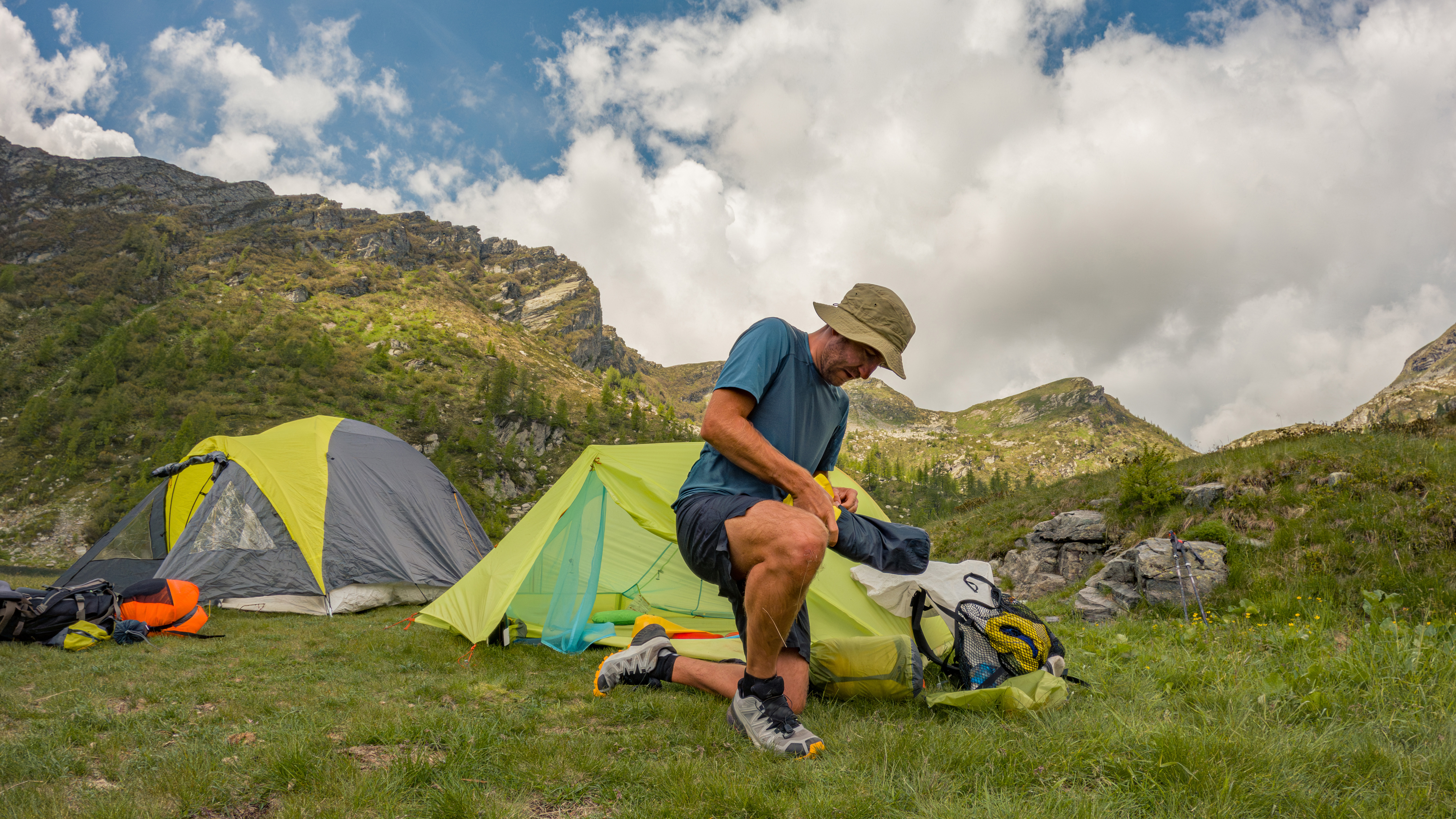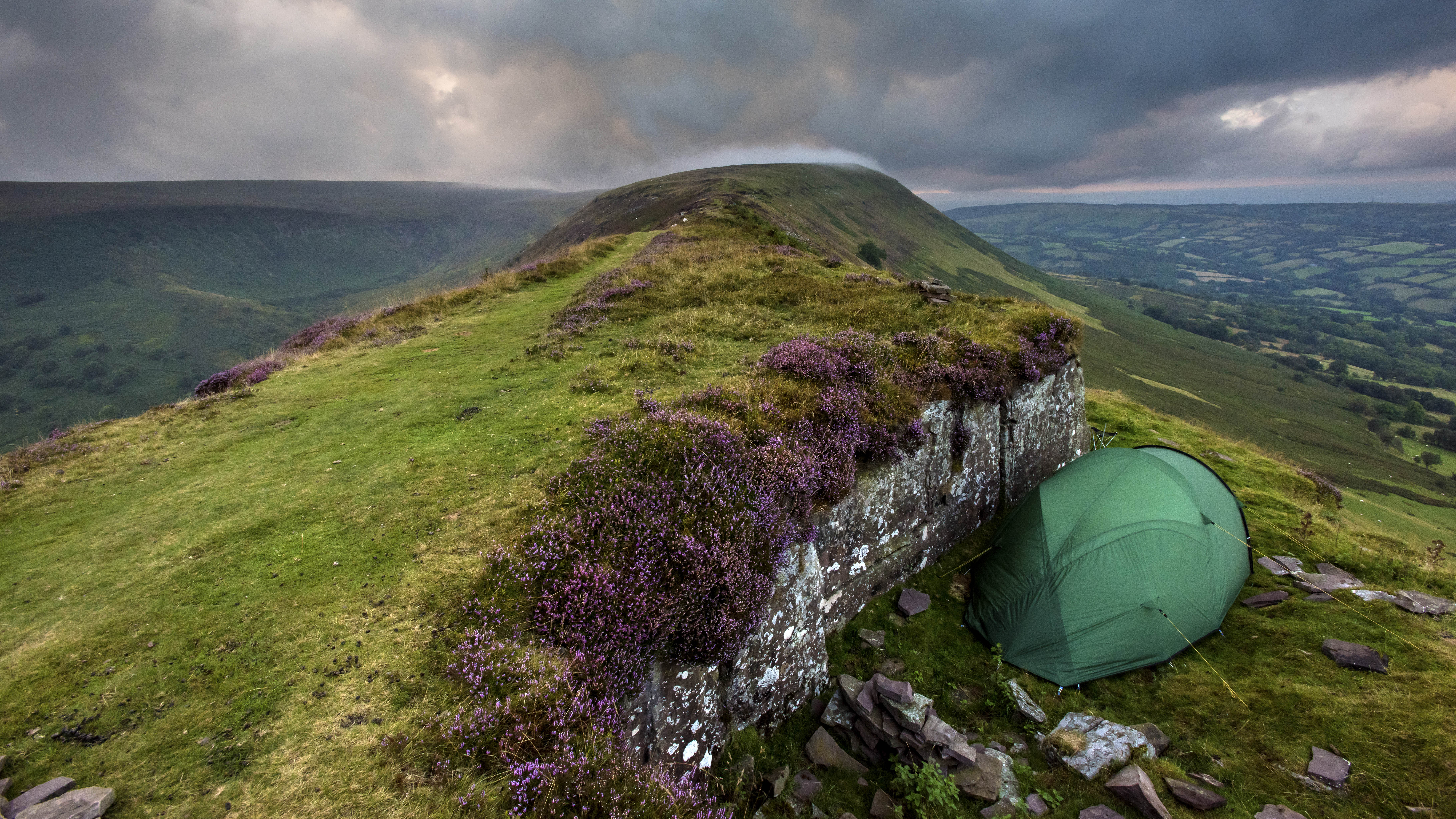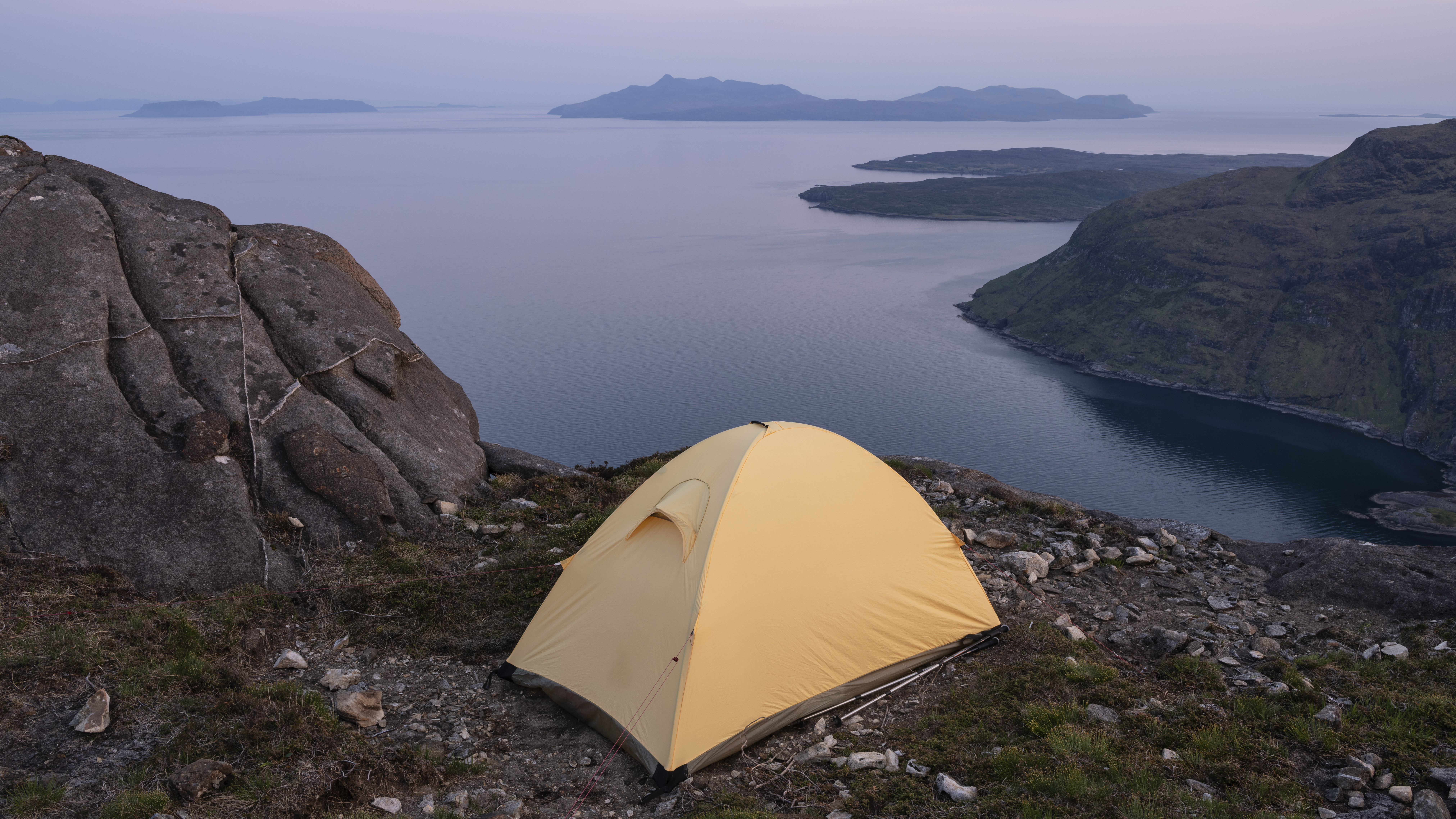
Wild camping has been all over the news recently since it was banned on Dartmoor and then subsequently ruled as legal once again by the Court of Appeal, a long-running story that has raised much interest in the activity and shone a light on access rights to open land in the UK. But a lot of people – including the judge who temporarily made it illegal across the whole of England and Wales – seem a little confused about what, exactly, wild camping is and how people conduct themselves when they do it.
What is wild camping?
Very simply, wild camping is the act of accessing the outdoors – by foot, bike or boat – and spending a night in a wilderness area (so, beyond the bounds of a commercial campsite), in a backpacking tent, or hammock or bivvy bag, under a tarp, or even just in your lightweight sleeping bag, staring up at the stars.
It is, as the Court of Appeal recognised when it lifted the ban on wild camping, a recreational activity, and it is enjoyed by many backpacking hikers, adventurous families, free-range bikepackers, fleet-footed fastpackers, multiday canoeists, dawn photographers, intrepid wildlife watchers, star gazers and many others.

Wild camping differs from sited camping in many ways, but principally because you choose where you sleep, you don’t pay a fee to anyone, and you don’t need to prebook your spot. All of this makes it particularly attractive for multiday hikers and bikers tackling long-distance routes and trails because they can simply continue walking or pedalling for as long as they feel like it on any given day before setting up camp for the night.
It is also, of course, a way of accessing and enjoying the outdoors that can be experienced by anyone, regardless of their financial situation. Access to wild areas and fit-for-purpose outdoor gear isn’t equal, sadly, but wild camping does at least remove one barrier – the price of a site.
Obviously, you do not have access to any facilities such as toilets or tapped water when you are wild camping, so you need to be prepared, carrying things such as a good water purifier and a bag to pack out all your rubbish (an old dry bag makes a great trash sack).

What are the issues around wild camping?
As well as defining what wild camping is, it’s just as important to define what wild camping is not because most of the negative arguments about the activity focus on the kind of behaviours that are very much discouraged by true wild campers.
Wild camping does not involve driving a vehicle to a site and staying there, free of charge, for several nights. Responsible wild campers use their own steam to access the outdoors and only stay for one night in any particular place. In fact, one of the tenets of wild camping is to pitch late and leave early.
Wild camping is also not about turning up with loads of other people, making lots of noise, and it certainly doesn’t involve leaving rubbish behind all over beautiful landscapes, starting fires and disrupting wildlife – all of these things are connected to problem picnicking and outdoor partying, which became an issue during the lockdown. Moves to outlaw wild camping would do little to stop such problematic activity and could, in fact, prove counter-productive because people who enjoy wild camping are more likely to object to or report such behaviours than to indulge in them.

Responsible wild camping
The vast majority of wild campers operate Leave No Trace principles (external link), which means they leave their chosen campsite exactly as they found it (sometimes better, if they collect rubbish left behind by picnickers and other visitors), packing out everything they take in with them, avoiding causing damage or disturbance to any animals, trees and plants, and using a camping stove for cooking instead of lighting a fire.
This also includes responsible toileting – going at least 50 metres from any water source, digging a hole for solid waste and either burning the paper (only if conditions are safe to do so) or packing it out.
There are other ethical considerations around wild camping. Responsible wild campers don’t stay in areas that are very heavily used by others (day visitors and overnighters) and therefore are already under stress.
If you’re using a tent, it’s also best to use one that’s discreetly coloured (with a green flysheet, for example) to avoid being a visual blot on the landscape for others. Pitch it late in the day, and drop it early in the morning for similar reasons. Be conscious of things like ground-nesting birds and wild animal burrows when you’re selecting a site, and never bash a new trail or flatten flora in order to find a spot.

Is wild camping legal?
This is a really thorny issue, and it basically depends on where you are – laws about where wild camping is officially allowed differ across Britain and Europe. As mentioned above, wild camping is once more permitted across much of Dartmoor (the Dartmoor National Park Authority provide all the details you need to know about where you can sleep out here), but, at the moment, this is the only place in all of England and Wales that you can legally wild camp without the landowner’s permission.
The situation in Scotland is completely different – the outdoor code in Scotland is far more permissive of wild camping (both external links), although it is proscribed in certain heavily visited areas, such as around the shores of Loch Lomond.
Getting permission from a landowner is one way of wild camping elsewhere in England and Wales (and in other countries), although that’s not always easy to do – it can be hard to figure out who owns a remote piece of land, let alone get in contact with them, and if you’re doing a multiday adventure you might not know where you’re likely to stop each night.
The other option is to be extremely discreet, make your site out of sight, stay for one night only (pitching late and leaving early) and leave no trace of you ever having been there in the first place, as per the principles laid out above, and these wild camping hacks. In many places, rangers are tolerant of responsible wild camping, and it’s worth remembering that unauthorised wild camping (which falls under trespass) isn’t a criminal offence in the UK (external link) and only becomes one – aggravated trespass – if you refuse to move on when asked, or cause damage to the place where you are camping.

Should I go wild camping?
If you enjoy engaging with wildlife and experiencing the outdoors, then yes, you absolutely should try wild camping. Sleeping under the night sky in a remote area – away from the noise of traffic and other people – is an astonishing liberating thing to do. Discovering a truly stunning spot to wild camp, offering views that you would never get at a commercial campsite, is like finding hidden treasure.
Wherever you wild camp, it’s a simple but beautiful way to reconnect with nature. Encounters with animals (both nocturnal and diurnal) are much more common when you’re not surrounded by other campers. Minus the light pollution that comes from office blocks, houses and cars, the stars can be spectacular, and sunsets and sunrises can be incredible in the peaceful surroundings of the wilderness.
Wild camping is a fantastic thing to experience with your children (they love the excitement of it), and it’s a great way to teach kids about how to behave in the outdoors – instilling good ethics at a young age. And if you’re planning a multiday adventure – on foot, by bike or in a boat – then wild camping offers you the most freedom, removing the restrictions that are imposed if you have to decide in advance exactly where you’re going to stop each day. So, yes, do go wild camping; just be responsible. The outdoors is for everyone.







